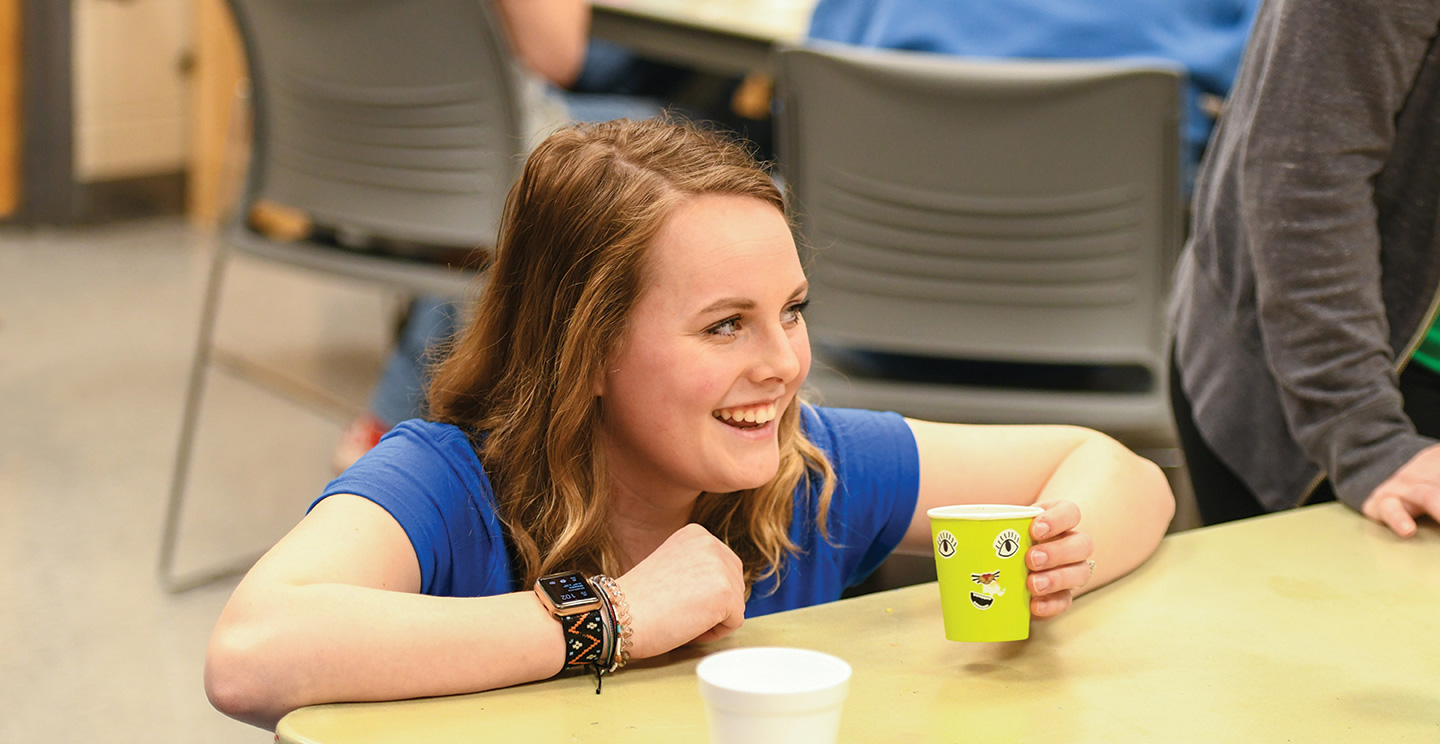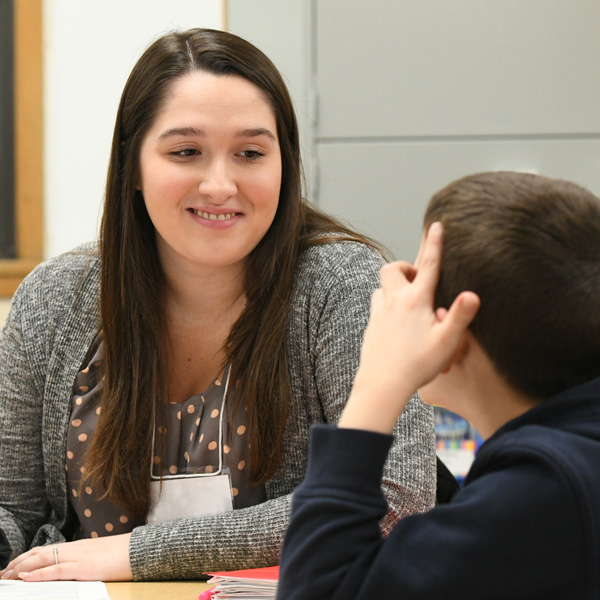Special Education with ESL/Bilingual (BA)

Why study Special Education with English as a Second Language/Bilingual?
The field of Special Education is growing. Not only are Special Education teachers in high demand in school systems, but experts in Special Education are needed in nonprofit organizations, advocacy groups, health care settings, and rehabilitation centers. A Special Education major with an endorsement in teaching English as a Second Language/Bilingual broadens your career possibilities and prepares you to help students reach their full potential.
At Aurora University, our unique Special Education with English as a Second Language/Bilingual program is designed to prepare you for your role as a teacher and enable you to make an impact in the world. Our faculty and students have a passion for working with individuals with disabilities and taking part in their growth and development.
AU’s program leads to two endorsements: Learning Behavior Specialist 1 (LBS 1) and English as a Second Language/Bilingual. Special Education professionals who know how to teach children who are ESL/Bilingual are in high demand, and these two endorsements will help you stand out as a job candidate for teaching posts in Illinois and throughout the nation.
Throughout your coursework and field experiences, you will develop specialized knowledge and skills in your content areas and be immersed in implementing evidence-based practices. You also will work closely with experienced teachers who will mentor you as you work toward earning your Professional Educator’s License (PEL) and help you prepare for a meaningful career after college.
In addition, as part of your studies, you will participate in a dual student teaching experience. This important part of your journey will enable you to participate in teaching students who have learning difficulties and behavioral challenges in a real classroom while you are still a teacher candidate at AU. Additionally, AU’s community partnerships will provide you with opportunities to collaborate with area preschools, day care centers, public and private schools, and therapeutic centers as you learn the most up-to-date methods for teaching Special Education.
All of Aurora University’s Education programs prepare you to become licensed as a teacher in the state of Illinois. Students must complete the Teacher Performance Assessment (edTPA) and pass the state licensure exams for LBS 1 in order to obtain LBS 1 licensure for PreK-12. The edTPA is a planning, instruction, and assessment portfolio required to prepare teachers for the classroom.
AU also offers endorsements that can be earned in addition to any education major, making you eligible for additional teaching opportunities. These include:
- Early Childhood Education Endorsement
- Elementary Education Endorsement
- English/Language Arts Middle School Endorsement
- Math Middle School Endorsement
- Science Middle School Endorsement
- Social Science Middle School Endorsement
- Spanish Endorsement
AU’s Special Education program provided valuable coursework, hands-on clinical experiences, and dedicated professors who ensured I was fully prepared to support diverse learners in a variety of educational settings.Jenna Johnson '23
annual median salary for special education teachers
2024-2034 job openings projected each year
- Disability categories and Special Education law
- Assessment, instructional planning, and curriculum development
- Classroom and behavior management
- Individualized Education Programs (IEP) development and case management
- Assistive technology
- Inclusive education
- Interactive classes with hands-on field experiences
- Aspiring Educators
- Communities in Schools
- Kappa Delta Pi International Honor Society in Education
- Wackerlin Center for Faith and Action
To learn more about all of AU's Education programs, including scholarships, click here.
Children with special needs paint the world in beautiful colors each day.Anonymous

Experiential learning
As a teaching candidate, you will work closely with students of various ages, study developmental stages and learning impacts related to diverse needs, and provide instruction in a variety of educational settings. Collaboration with classmates and mentoring by experienced teachers and professors add to the comprehensive training. The field experiences culminate in a semester-long student teaching experience in Special Education, where candidates teach in both elementary and secondary school settings.
Career possibilities
- Behavior specialist
- Disability case manager
- Home-bound teacher
- Hospital and treatment center teacher
- Juvenile detention center teacher
- Remedial skills instructor (GED preparation)
- Special education advocate
- Special education teacher
- Vocational rehabilitation professional
Career options with additional education
- Educational therapist
- Education-training administrator
- Guidance counselor
- Librarian
- School psychologist
- Speech pathologist
- Professor
- Vocational rehabilitation counselor